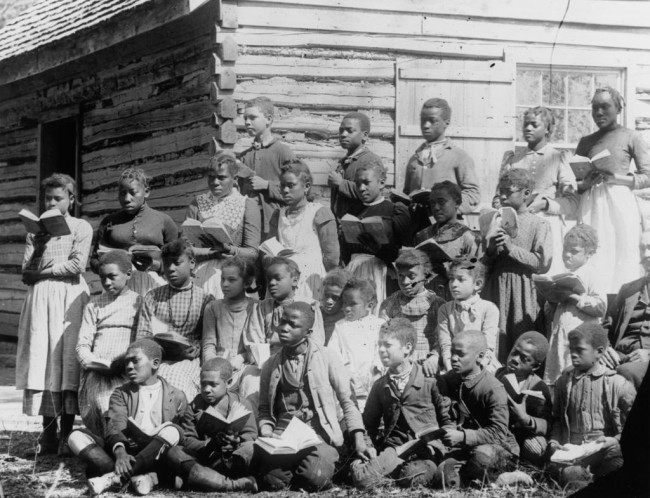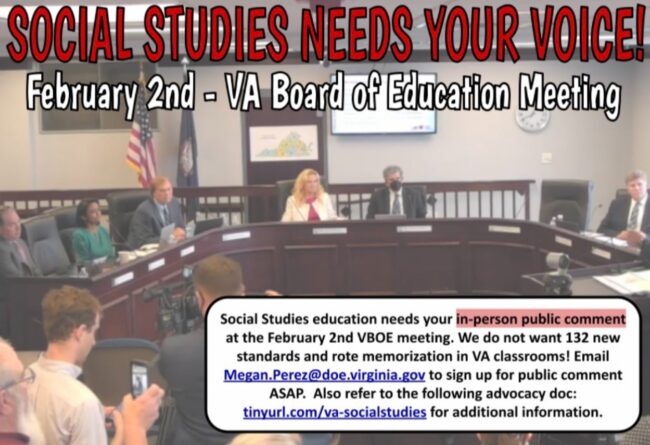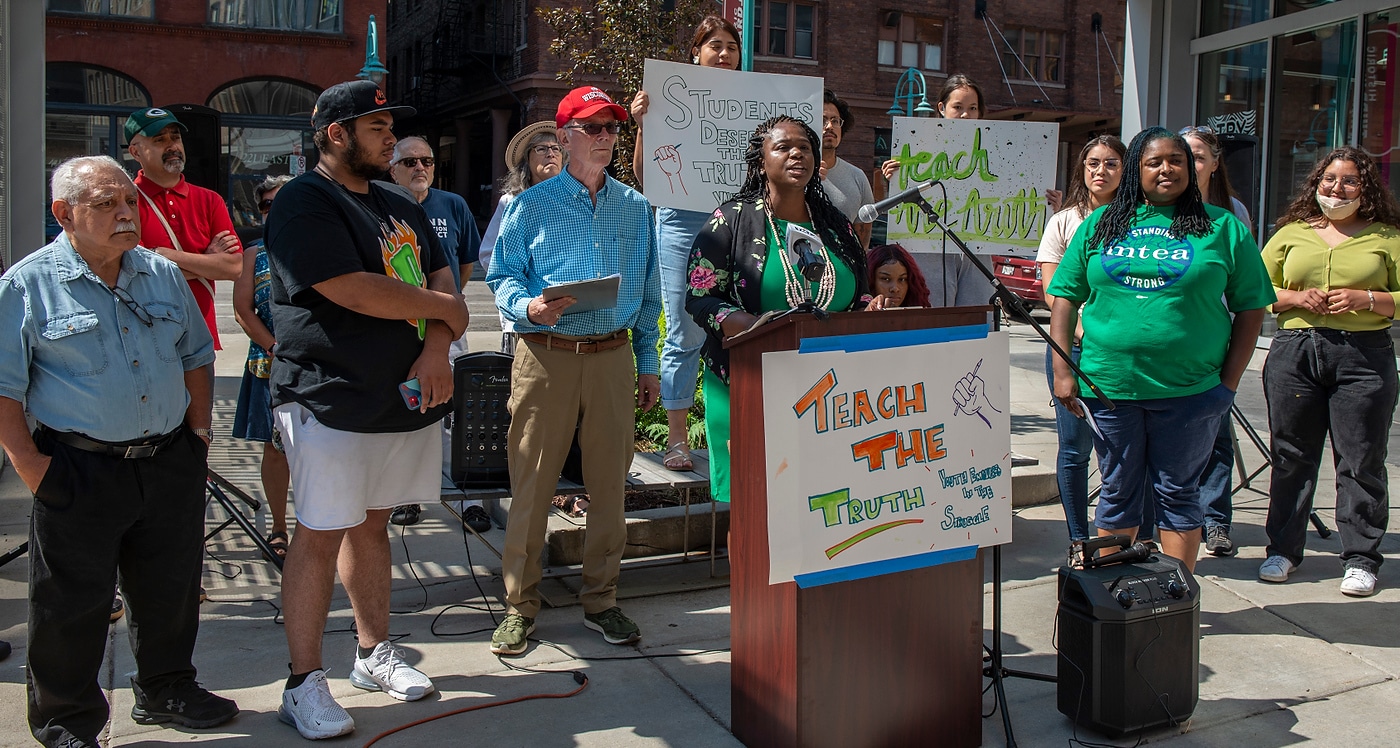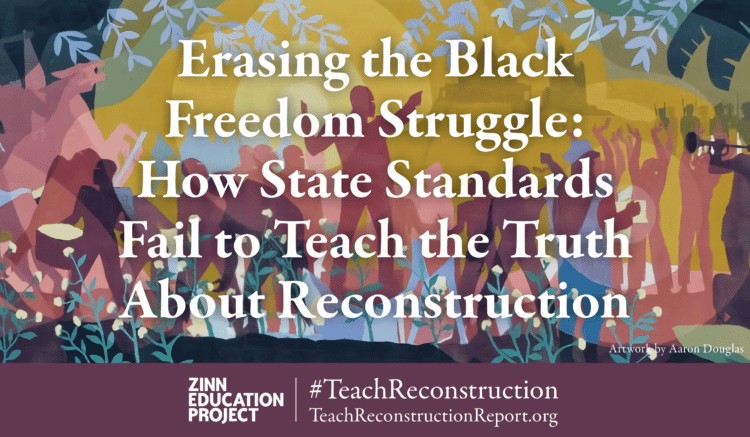Update: The Virginia Social Studies Leaders Consortium (VSSLC), Virginia Association for Supervision and Curriculum Development (VASCD), American Historical Association (AHA), Virginia Council for the Social Studies (VCSS), National Council for the Social Studies (NCSS), and Virginia Geographic Alliance (VGA) issued a statement on Jan. 17, 2023. They said, and we agree:
Based on our thorough review, we strongly urge the Virginia Board of Education (VBOE) to consider the Collaborative Draft Standards submitted by VSSLC, VASCD, and AHA on December 20, 2022, for first review. The January draft standards issued by the Superintendent of Public Instruction are neither historically rigorous nor reflective of the established process previously approved by VBOE. Moreover, they are unrealistic, containing a vast quantity of rote memorization that is neither useful nor likely for content knowledge retention. Continue reading.
Defend History Education: Speak out at the Feb. 2 meeting.
Submit public comment via letter or email to the Virginia Board of Education urging them to adopt the Collaborative Standards developed by VSSLC, VASCD, and AHA.
*Click here for more information along with sample letters and emails.
Sign-up to provide in-person public comment at the next Virginia Board of Education meeting at the James Monroe Building in Richmond, Virginia.
*Click here for more information.
Encourage your organization to officially endorse the Collaborative Standards developed by VSSLC, VASCD, and AHA.
*Click here for more information and sample press release.
Share the advocacy landing page: tinyurl.com/VA-SocialStudies
Background
For two years, new education standards for history and social science classes have been drafted in a public process with the participation of educators, historians, geographers, economists, museum staff, diverse organizations, parents, students, and the Virginia Department of Education staff. They considered more than 6,000 public comments. This collaboration included the Commission on African American History Education.
As those new standards come up for formal adoption, the Virginia Department of Education under Gov. Glenn Youngkin has proposed their own revisions — in consultation with Hillsdale College, proponents of the right wing 1776 Curriculum. (Read more in Virginia education department proposes major changes to social studies standards by Joe Heim in The Washington Post.)

Freedpeople’s school, ca. 1890. From the Valentine Museum.
Two organizations working to defend teaching honestly about U.S. history, the Virginia Social Studies Leaders Consortium and the Hamkae Center, asked the Zinn Education Project to solicit comments on the proposed standards. We invited our colleagues at Historians for Peace and Democracy (H-PAD) to review them.
In addition, our staff member Mimi Eisen commented on the Reconstruction standards, drawing on the analysis in the report she co-authored, Erasing the Black Freedom Struggle: How State Standards Fail to Teach the Truth About Reconstruction. Those comments are below.
Background
Gov. Youngkin’s draft standards on Reconstruction mark an egregious shift from the work that the Virginia Commission on African American History Education has been doing to provide a more accurate, just, and complete history. The Youngkin staff’s standards remove entirely, or broaden to a degree that renders them meaningless, key aspects of Reconstruction. They downplay African Americans’ aims and achievements for freedom and equality and the white backlash to those efforts, which are central to this history.
Here are a few examples, by course:
Virginia Studies (VS) course: The Commission’s standards highlight African Americans’ experiences contending with injustices and violence, as well as their pivotal work to found the state’s first public school system — among many other contributions and experiences. Youngkin’s staff erased these content areas or generalized them in ways that de-emphasize actual people and agency.
United States History: U.S. History 1865 to the Present (USII) course: The Commission’s standards highlight specific promises, intentions, and limitations embedded in the Reconstruction Amendments — which are foundational to many legal rights today. Youngkin’s standards remove most of this language and generalize the “goals and effects” of this and related Reconstruction-era legislation.
Virginia and United States History (VUS) course: Despite including a heading called “Expansion, Civil War, and Reconstruction,” Youngkin’s standards hardly address Reconstruction. This section lists dozens of standards; only a few belong to the Reconstruction era. These few standards are broad and minimizing, with an emphasis on white political leaders or passive voice with no actors. For example, they prompt students to explain the “extension of rights provided” in the Reconstruction Amendments, to describe the roles of “key” Civil War and Reconstruction figures such as Abraham Lincoln, Jefferson Davis, Ulysses S. Grant, and Robert E. Lee, and to evaluate and explain the “political and economic impact” of this period.
A true, complex accounting of Reconstruction reflected in social studies standards would center the myriad experiences, organizing efforts, and achievements of Black people for justice and multiracial democracy. And it should feature the many ways white supremacists mobilized to dismantle Reconstruction. With these new draft standards, Youngkin’s team joins a tradition of whitewashing and suppressing this history — to the detriment of students and communities across the state and beyond.
Add Your Voice
The Virginia Social Studies Leaders Consortium asks you to add your voice of concern.
| Submit a letter to the Virginia Board of Education (VBOE) in opposition to the rewrite of the History and Social Science standards linked above. It is essential to note that the American Historical Association (AHA) urged the Virginia Board of Education to adopt the previous version of the proposed Social Studies Studies Standards that was the work of countless educators and historians over the course of the past two years according to the process detailed in Virginia Code. |
Please submit your letter to Emily Webb, Director for Board Relations emily.webb@doe.virginia.gov, Please be sure to cc: Board members at BOE@doe.virginia.gov, State Superintendent Balow at superintendent@doe.virginia.gov, Governor Glenn Youngkin at Contact the Governor’s Office Aimee Guidera, Secretary of Education at aimee.guidera@governor.virginia.gov and your respective State Representatives |









Twitter
Google plus
LinkedIn